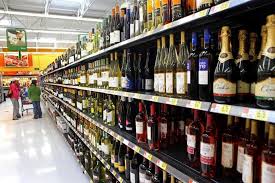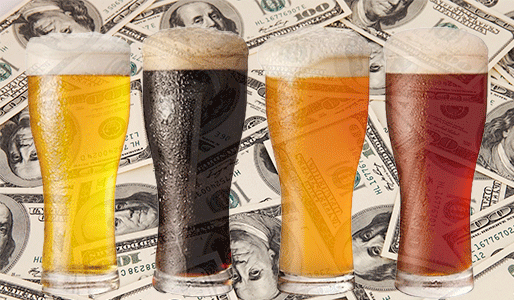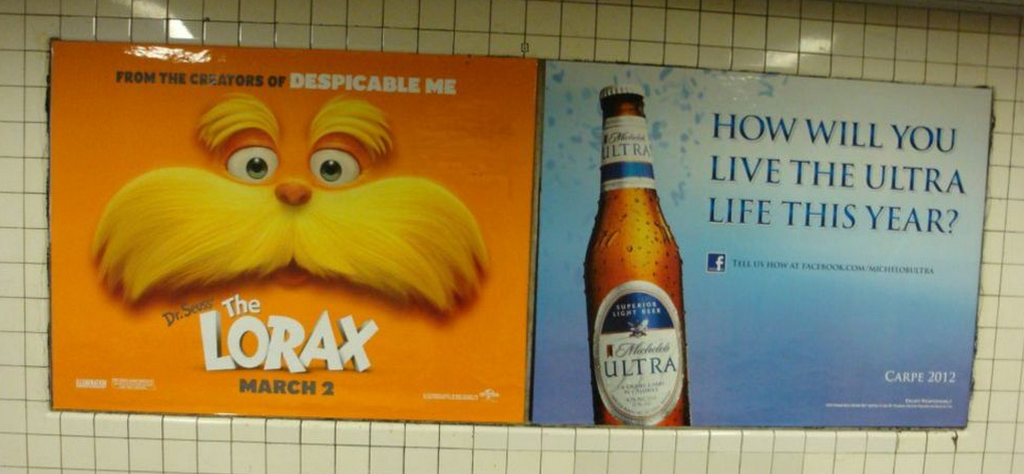Blog
Search
Blog
Alcohol Tax Increase Proposals - City & State
- Details
- Created: Monday, March 09 2015 15:28

Two new proposals to increase alcohol taxes were recently introduced--one to mitigate alcohol-related harm at the local level, and one to address a major state budget deficit.
Boston City Council members Bill Linehan and Frank Baker have proposed legislation allowing the city to levy its own alcohol tax of 1 to 2% to pay for substance abuse and treatment programs. Kansas Governor Brownback has proposed raising the retail tax on packaged alcoholic beverages from 8% to 12%, to compensate for an expected $600 million budget shortfall.
Public health researchers in Boston pointed out that alcohol is undertaxed in Massachusetts, noting that cities should be allowed to establish their own alcohol taxes to cover local substance abuse treatment, crime abatement, health care, and other costs from alcohol. Alcohol-related harm costs the public approximately $0.75 per standard drink in Massachusetts, while the excise tax collected per standard drink is about 1 cent for beer, 2 cents for wine, and 5 cents for distilled spirits. Alcohol is also exempt from sales tax in the state.
Alcohol excise taxes in Kansas have languished since 1977, and drink taxes for bars and clubs have not been raised since 1979. (Small retail tax increases for such establishments were enacted in 2010 and 2014.) Alcohol-related harm costs $0.87 per standard drink in Kansas, while the average tax paid per drink is $0.02.
Increasing the price of alcohol with taxes and fees is an effective policy for reducing alcohol-related harm. But Big Alcohol and its trade groups such as the Distilled Spirits Council of the United States (DISCUS) and the Beer Institute spend millions lobbying against the most effective alcohol policies that improve and protect public health.
Click here to see more legislative activity for federal and state proposals re: alcohol taxes.
Bills to Slide Back Federal Beer Taxes
- Details
- Created: Friday, February 13 2015 17:25

Two competing bills to cut excise taxes for beer producers have been introduced by Congress. In the 23 years that have passed since the last increase, the government has lost millions in inflation erosion, and economic harm from excessive alcohol consumption now costs U.S. governments over $94 billion a year. If either bill is enacted, millions more in tax revenue will be lost.
Bills to reduce beer excise taxes have provided a national stage for this industry food fight, complete with hundreds of hours of face-time for beer lobbyists to cement their influence on members of Congress. The Beer Institute (BI), a producer trade group led by the Big Beer Duopoly, has been behind annual bills to slash excise taxes for all brewers for years. The Brewers Association began its promotional efforts for an annual bill to decrease beer taxes in 2011, and the two industry groups have been at it ever since.
This year's BI bill, House Bill 767, would eliminate or lower excise taxes on the first 2 million barrels and extend tax breaks to beer importers. The bill would cost $113 million per year in lost taxes. The BI spent $2.1 million in 2014 alone lobbying Congress, their number one issue to oppose any increase in the federal excise tax.
Senate Bill 375, the latest from the Brewer's Association, would cut the excise tax rate for all beer producers, regardless of size. The bill would cost $64 million per year in lost taxes. This would allow A-B InBev and MillerCoors each an extra $870,000 in tax savings each year; A-B InBev reported $43.2 billion in revenue in 2013, and SABMiller, MillerCoors's parent company, reported $34.5 billion.
88,000 people in the U.S., 1 in 10 working-aged adults, die each year from excessive alcohol consumption. Alcohol excise taxes are the most effective public health intervention to reduce excessive consumption and alcohol-related harm. Instead of allowing beer producers to whittle away at effective public health policy and government tax revenues, Congress should consider a reasonable beer tax increase.
View state and federal bills on alcohol taxes here.
NYC Campaign to Free Public Transit from Alcohol Ads
- Details
- Created: Friday, February 13 2015 19:21

A new campaign to ban alcohol ads on public transit in New York City (NYC), Building Alcohol-Ad Free Transit (BAAFT), has signed on a bevy of supporting partners, including public health advocates, businesses, and medical, religious, youth, and educational organizations. NYC's Metropolitan Transportation Authority's (MTA) current policy specifically allows alcohol ads in trains, buses, shelters, and stations. According to BAAFT, thousands of youth ride MTA buses and trains every day, and 600,000 students receive MetroCards each year.
NYC lags behind other major metropolitan areas, such as Seattle, San Francisco, Boston, and Philadelphia, and most recently, Los Angeles, in taking steps to remove alcohol advertising from public transit. Exposure to alcohol advertising is related to earlier and greater alcohol consumption among youth, and public health advocates like Alcohol Justice have long advocated for the removal of alcohol ads on public property.
For more information in the BAAFT campaign, and to sign the petition to remove alcohol advertising from NYC public transit, click here.
More Articles ...
Subcategories
Help us hold Big Alcohol accountable for the harm its products cause.
| GET ACTION ALERTS AND eNEWS |
STAY CONNECTED    |
CONTACT US 24 Belvedere St. San Rafael, CA 94901 415-456-5692 |
SUPPORT US Terms of Service & Privacy Policy |
Copyright © 2026 Alcohol Justice. All Rights Reserved.
Joomla! is Free Software released under the GNU General Public License.


